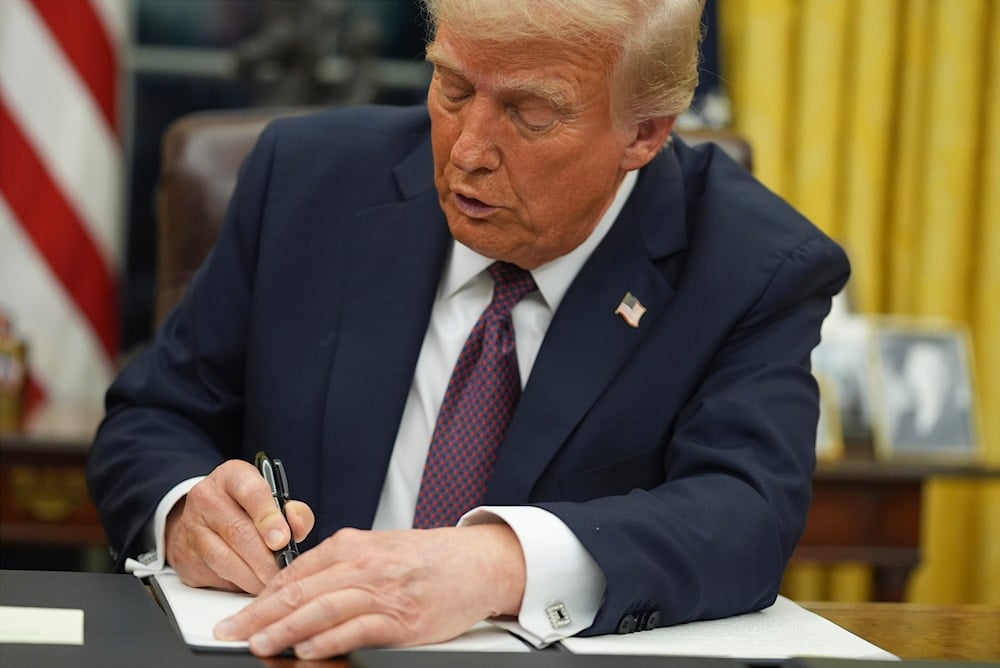Trump's order on birthright citizenship rejected by US appeals court
The decision came after Trump's controversial executive order triggered a flurry of lawsuits and legal actions from several states, civil rights groups, and attorney generals.
-

US President Donald Trump signs an executive order on birthright citizenship in the Oval Office of the White House in Washington, on January 20, 2025. (AP)
The US federal appeals court ruled to block Trump from ending birthright citizenship on Wednesday, after Trump signed the executive order on January 20 which caused mass controversy and lawsuits from several entities.
The judges in the San Franciso Court of Appeals found that the Department of Justice failed to make a "strong showing that they are likely to succeed on the merits of this appeal," setting the case down for further review, with arguments scheduled for June.
Trump's executive order is facing many lawsuits from Democratic attorneys general and civil rights groups which filed the lawsuits in January on the basis that it violated the Constitution, and the case could plausibly end up in the US Supreme Court.
Courts in the states of Maryland, Massachusetts, and New Hampshire issued rulings to block the order, while the 9th US Circuit Court of Appeals declined an emergency request by the Department of Justice to stop a lower-court Seattle judge's order from taking effect.
Trump and Birthright Citizenship
Trump vowed during his presidential campaign that he would end birthright citizenship in a campaign video that he shared on Twitter on May 28th, promising that he would issue an executive order to stop issuing citizenship by birth to children of illegal immigrants in the US.
Trump signed an executive order terminating birthright citizenship the day after his inauguration on January 20, effective on February 19th, triggering a flurry of lawsuits and legal trouble from Democratic states and civil rights groups.
BREAKING
— Vineeth K (@DealsDhamaka) January 21, 2025
Trump ends birthright citizenship, ending the policy anyone born in U.S. automatically receives a U.S. passport.
pic.twitter.com/Sbf0bmKH2g
An 18-state-coalition filed a lawsuit on the same day Trump signed the order, with California Attorney General Rob Bonta describing the order as unconstitutional and harmful, stating "We are asking a court to immediately block this order from taking effect and ensure that the rights of American-born children impacted by this order remain in effect while litigation proceeds. The president has overstepped his authority by a mile with this order, and we will hold him accountable."
A Seattle-based federal judge issued a temporary restraining order on Thursday to block Trump from implementing the executive order, which he deemed "blatantly unconstitutional," after four Democratic-led states requested the injunction.
Birthright citizenship is based on the 14th Amendment ratified in 1868, which was designed to secure the rights of former slaves and their descendants, "All persons born or naturalized in the United States, and subject to the jurisdiction thereof, are citizens of the United States and of the State wherein they reside," the Amendment reads.
The demographic changes the US witnessed triggered the emergence of the "White Replacement" conspiracy theory which believes that a plot to change America's demographics by enacting anti-white policies, a theory Trump echoed by saying immigrants are "poisoning the blood of our country."

 3 Min Read
3 Min Read








